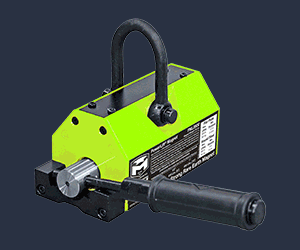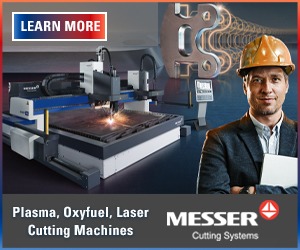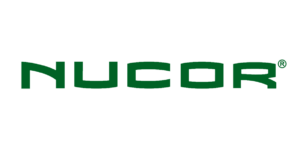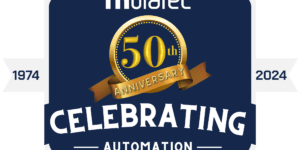Lean and Mean Surface Finishing
Investing in better consumables that significantly cut time and manpower costs is smart business. Selecting the right abrasive technology for specific applications to achieve speed and precision is one way to maintain your bottom line.
Posted: December 3, 2014
During the economic downturn, many industrial manufacturers were forced to drastically cut costs across the board in order to remain competitive. This proverbial tightening of the belt was seen as a necessary step to help successfully meet the economic challenges ahead. Now, after several years of forced austerity, the dust has settled and the global economic outlook has improved. We are seeing growth and expansion across key industrial markets, including automotive, oil and gas, and aerospace.
In a report recently released by the Manufacturers Alliance for Productivity and Innovation (MAPI), manufacturing production is forecast to increase 2.2 percent in 2013, 3.2 percent in 2014, and 4.1 percent in 2015. While metal fabricators have seen steady business growth over the past few years, they remain cautiously optimistic, “hoping for the best, but preparing for the worst,” according to industry surveys.
It is this very outlook that might hold the key to future success. While difficult from a business standpoint, the economic downturn did impart a greater understanding of the importance of operational efficiency. As the economy turns a corner, metal fabricators face a unique opportunity to apply these hard-learned lessons and enhance manufacturing processes moving forward.
In any maintenance repair and overhaul (MRO) shop, there is constant pressure to improve productivity while reducing costs. While this sounds like an impossible task, the two objectives are not quite as disparate as they might seem.
Surface finishing – a vital part of any MRO operation – is an ideal place to start implementing “lean and mean” manufacturing practices. Utilizing high-quality consumables can help eliminate unnecessary processes, increase speed and provide a superior performance; raising quality while bringing down operational costs as a whole. The first step is utilizing the right abrasives technology for specific applications to achieve speed and precision with an eye on maintaining the bottom line.
FINER FINISHING SOLUTIONS
The new MRO ideal is based on a lean manufacturing model, streamlined to cost-effectively achieve increased throughput without sacrificing quality. For example, we are seeing next-generation hand pad products that feature a specialized coating process ensuring the grain is more exposed for superior and consistent cutting action. Non-woven material with needled webbing has been developed for hand pad products that are uniquely flexible for hard-to-reach areas.
These hand pad products are also strong, providing the benefits of both a course- and fine-grained surface finishing product in one. The result is a new type of “easier-to-use” hand pad that is conformable, comfortable, thinner for faster cutting, and longer-lasting than conventional products.
LEAN AND MEAN SURFACE CONDITIONING
The lean and mean model applies to surface conditioning as well. In an MRO shop, surface conditioning products – including discs and belts – are typically used for a wide range of industrial applications that such as blending and deburring. Recent advances in the development of non-woven materials used in surface conditioning products now can allow MROs to complete projects faster and more consistently, with reduced labor and energy requirements, keeping costs to a minimum, despite the potential increase in the cost of consumables per unit.
INCREASED EFFICIENCY
Durability is a key attribute when looking at surface conditioning products. Simply put, the longer a product lasts, the fewer units MRO operators need to purchase. When compared with conventional aluminum oxide SCM products, surface conditioning products made of non-woven materials that are enhanced with advanced abrasive grain and smear-free resin show a longer useful product life and more consistent cut rate. This enables industrial operations to reduce or eliminate steps in a surface improvement process, increasing throughput without requiring additional resources. Decreased operational costs – especially in terms of time and manpower – more than offset slight cost increases in consumables per unit.
For more challenging applications, advanced quick-change stripping and blending discs feature a ceramic alumina long-lasting grain and advanced resin bond, providing twice the useful product life of conventional surface conditioning products. Durable design ensures that these next generation products do not shed on rust-covered pieces. In addition, the open web structure is resistant to loading on coatings, adhesives or softer metals. This means that it will not load like conventional quick change discs (Lantuck) or fiber discs, allowing for longer product life and cost per part savings.
EXTREME VERSATILITY
Versatile products allow for multiple operations using just one disc, a medium-grit surface conditioning disc for more difficult strip-and-clean jobs. State-of-the-art disc material is stiff enough for challenging applications, but also soft enough to prevent gouging that can necessitate rework. What once necessitated two different processes requiring additional resources can now be handled using just one hybrid product. In addition, discs with three-dimensional construction can perform consistently across a variety of surfaces without the need for change-out for difficult-to-reach areas.
High-performance, long-lasting surface conditioning products capable of performing multiple tasks bring an increased level of speed, precision, and consistency to the MRO shop while minimizing labor requirements and part replacement costs.
If the economic downturn has taught us anything, it is the value of speed and efficiency. The new ideal in industrial manufacturing is lean and mean operations, combining speed and precision, while keeping costs down. As the economy continues along the road to recovery, MRO shops – under intense pressure to work quickly and cost-effectively – are the ideal place to apply this hard-learned manufacturing principle, making it standard operating procedure.
Recent advances in materials science have fostered innovative solutions with abrasives in surface conditioning products, designed to meet the needs of time-sensitive metal fabrication and MRO operations. This next generation of engineered surface conditioning and nonwoven abrasives products, including discs, belts and hand pads, can provide higher efficiency, and higher productivity, while eliminating additional steps, ensuring that projects are completed quickly, with reduced labor and energy requirements.
Investing in better consumables in order to significantly cut time and manpower costs is smart business. Streamlined manufacturing that performs efficiently and effectively is the key to driving profits in both good times and in bad.














